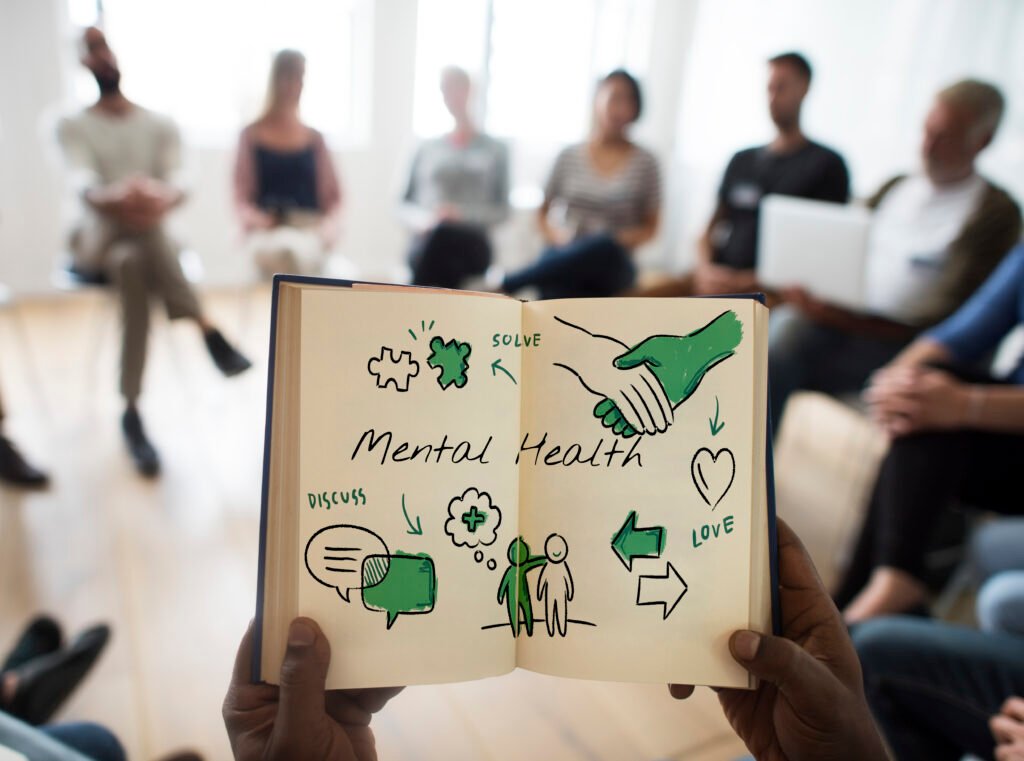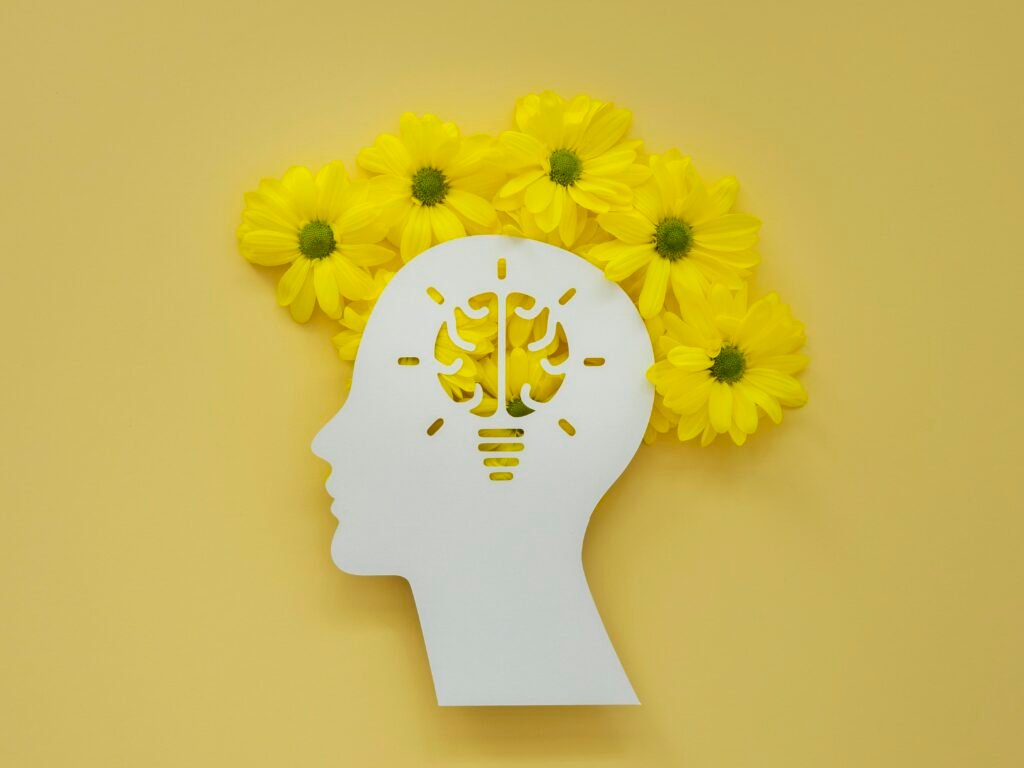A Comprehensive Guide for All Genders
Introduction to Mental Health
Mental health can be analogous to other descriptions of well-being such as emotional, psychological, and social well-being. It affects how people think, feel, behave, and choose daily. The importance of understanding mental health lies in how it dictates the way people interact with one another, manage stress, and take on challenges. Mental well-being means a state of emotional balance, resilience to stress, happiness due to the joy of living (Engagement in life), and satisfaction with relationships. On the other end of the spectrum, poor mental health can manifest as a wide range of problems (e.g. anxiety symptoms and pathological depression), many significantly deleterious in daily life requirements.
Mental health is a component of health like your blood pressure and cholesterol; it transcends all genders regardless of the demographic. Significantly, men are more shielded and inconsistent than women because of both societal expectations (to be strong rather than vulnerable) as well as biological factors that play another role in the way they express feelings and take responsibility. For example, men may be less likely to seek help for mental health problems due in part to societal expectations of masculinity and stoicism. In contrast, women may feel more pressure to participate in caregiving as a form of emotional labor. Recognizing these subtleties helps us understand mental health across genders a little bit better and how we can establish more helpful support systems.

Secondly, mental health is not a fixed case but a fluid component of our lived experience. It can be impacted by numerous things, from life experiences to trauma, to social interactions and even physical health. Mental health literacy involves much more than identifying and treating mental disorders when they occur: building resilience, promoting good mental health, and ensuring that people have access to protection and support are also key elements. By focusing on mental health, we help support more collective relationships, a better way of life, and an overall positive environment throughout our societies.
The State of Mental Health in Men
This is especially important because men’s mental health has become a critical issue that tends to hide behind societal expectations and stigmas associated with being male. Men are often taught to “man up” and hide their emotions because traditional masculinity suggests that men should be physically strong, independent, and stoic. Consequently, many men are brought up believing that they have to bury their emotions so deep down for fear of being perceived as weak. This manifests in many forms and leads to psychological distress including but not limited to, depression, anxiety, and even suicidal thoughts.
Research also shows that men recalibrate mental health issues in ways different from women. Depression may look like sadness in women but appear in men as irritability, anger, or risk-taking. Cultural norms, likewise, complicate diagnosing mental health issues in men and providing them with the appropriate course of treatment. Most alarmingly, men still refrain from accessing mental health services because of beliefs in weakness and fear of stigma.

In men, the most diagnosed mental health problems are depression, anxiety disorders, and substance abuse. Men are generally more likely than women to use substances as a coping mechanism, which can of course make underlying mental health conditions worse. In fact, men are more likely to suffer the long-term repercussions of being left untreated for a mental health condition, with higher figures in suicide. And, no! This reveals the pressing need to combat men’s mental health.
To tackle this head-on, we need to create a culture where open conversation relating to men’s mental health is encouraged. These are great first steps toward solving these serious problems, by allowing men a judgment-free area in which they can express their feelings and attempt to get help for them. This means recognizing the specific mental health problems men may face — and offering them opportunities for better holistic well-being to encourage these supportive measures.
Promoting Men’s Mental Health
With increased consideration of the importance of mental health, not only for overall well-being but also as a matter directly related to physical health, men’s mental health has seen importance. Men can take several concrete steps towards improving their mental health by creating an enabling environment and promoting resilience. Successful methods include encouraging men to talk about how they feel. No such issue exists with men discussing emotions and those cultural stigmas need to be torn down. They share their own emotions and thoughts, allowing them to begin the healing process and create connections with others in a deeper way.
Professional help Another vital avenue for improving mental health among men is asking for professional help. Therapy and counseling in Los Angeles, California are important for the support and guidance that mental health professionals offer. One also must realize that asking for help is not weak, it is strength. This normalization shows men that it is acceptable to put a heavier focus on their mental health, allowing them to do so without feeling inadequate.

Exercise is also a big part of helping to maintain good mental health. Endorphins are mood-enhancing and energy-promoting hormones that are naturally released through exercise. Incorporating physical exercise into daily activities, which includes everything from team sports and gym work to outdoor pursuits, is one of the most effective ways by which stress can be relieved and emotional equilibrium achieved.
In addition, by actively forming and upholding constructive connections, one can erect a system of compassion and comradeship. Men should be encouraged to develop bonds with other men that make room for actual vulnerability. Connect with Other Men creating a community-building opportunity of fellowship, critical for the mental health and psychosocial development of men.
In summary, creating support for men battling mental health will require the community to work together in dismantling societal constructs, opening up dialogue, and establishing safe places. These ways may help men improve their mental health and create an environment in which we all talk more openly about our mental well-being.
The State of Mental Health in Women
Like all mental health issues, female-specific difficulties are many-layered and influenced by a range of biological and psychological — as well as social experiences. The nature of such challenges is unique, with biological factors like fluctuations in hormone levels playing a major role, and societal expectations and cultural norms that put added pressures on women making things harder for them. Life events such as menstruation, pregnancy, and menopause are relevant examples through which different emotional states can affect mental well-being. Altered hormones also cause mood disorders like premenstrual dysphoric disorder (PMDD) and postpartum depression to increase. Understanding how these biological factors affect the specific mental health condition that a person has, or might propose to get later on is very important.
Psychosocial stress and the emotional strain of living under crushing societal pressures can weigh proportionally alongside a flood of hormones on women’s mental health. In women´s cases, traditional gender roles and expectations have told them how they should behave: as a result, many experience stress, anxiety, and low self-esteem. Since women are often juggling between work, motherhood, and family life, the responder writes about how this can cause stress. When you are in this cycle, it may raise the likelihood of mental health disorders, like anxiety or depression as a byproduct of severe self-doubt from not meeting the expectations.

Additionally, studies show greater susceptibility for women to a number of mental health disorders compared to men. These include anxiety, depression, and eating disorders which are more common in women, often due to a mixture of biological predisposition (such as differences in hormone levels) and the environment. Women are affected disproportionately by stressful life events — that include trauma and abuse — which can seriously challenge their emotional health and identity. Identifying and tackling issues such as these are crucial to improving the mental health status of women. The need of the hour given our increased understanding of mental health is personalised helplines ripe with targeted interventions to support women in their struggle on the path towards emotional well-being.
Supporting Women’s Mental Health
This is very important as women’s mental health is all but the part of living a healthy and fulfilling life without any normal physical or social factors including emotional, physiological, and sociological processes. There are different ways for women, but that is a discussion for another day. Self-care practices, first of all, are imperative. Women should also focus on everyday leisure activities and relaxation (engaging in leisure activity, doing mindfulness exercises, or any recreational activities) Taking even just a few minutes of mindfulness or meditation daily can dramatically lower stress and build emotional resilience.
Building social networks is another important factor in mental well-being. Friends, family, and support groups are a great source of emotional support throughout tough times. It unites women and enables them to share their emotions, which is thought to result in greater connectedness, validation, and support for one another. Connection is a critical factor in preventing or minimizing the isolation that can predispose many women to anxiety and depression.

Good stress management is also important for the mental health of women. Breathing exercises, physical activity, and effective time management can help you keep your daily stressors under control. Regular exercise is also really good for your mood and helps to relieve stress, so that should be part of either your mental health strategy or an early trigger. As well as this, thoughtfully thinking about your daily aspects can help ease the feeling of overwhelm by breaking down what is important and setting achievable tasks.
Also, therapy or counseling offers great tools to tackle mental health issues. Seek professional guidance, who can suggest customized ways to overcome life challenges and help you become more self-aware and have an anchor for coping. Therapy provides a safe space for women to be able to talk freely about their fears and their dreams, which can relieve their burden and improve their mental health. Put women in the picture for self-care, rebuilding strong connections with your female friends and, most importantly speaking to a psychologist or therapist who can help develop strategies for long-term health.
Universal Strategies for Healthy Mental Well-Being
Good mental health in general, the basis of our well-being for both men and women, can be sustainably promoted through different universal tactics. One of the most advantageous ones is mindfulness — where we pay attention, in a certain way on purpose and without judgment from moment to moment. Mindfulness is useful for reducing stress and normalizing emotional regulation, which is massively beneficial to our overall mental health.
A well-balanced diet is yet another essential feature. Having a balanced diet can make a vast difference in how one feels, as some nutrients even affect our mood and cognitive function. Eating a diverse assortment of fruits, vegetables, whole grains, lean proteins, and healthy fats can support brain health and prevent mood imbalance. Particularly, foods like fish or flaxseeds that are high in omega-3 fats have actually been revealed to assist with mental health.

Regular exercise is also one of the important reasons for good mental health. When you exercise, endorphins — neurotransmitters that act as the body’s natural painkillers — are released into your system. Exercise — whether that be running, walking, cycling, or competing in a sport — consistently has been shown to reduce symptoms of anxiety and depression and improve general mental toughness.
While it is far enough time to access the sleep entry point, insufficient/responsive sleep should never be overlooked because it goes hand-in-hand with mental health. An unvarying sleep schedule and good, sound sleep are both beneficial for cognitive functions as well as emotional regulation. Practices that improve the amount and quality of sleep include good sleep hygiene, which includes doing a calming bedtime routine and not looking at screens right before bed.
Lastly, creating relationships positively is essential to the health of your mind as well. Interaction with encouraging peers and relatives can create belonging and emotional safety. There is a buffet of evidence pointing to the fact that strong, positive social connections allow us to better handle stress and adversity.
The Role of Community in Mental Health
Evan style Urls Thot Community is an important component in nurturing the mental health and well-being of all genders. In the improvement and maintenance of mental health, social connections have been thought to be one of the most important factors. Collaboration is key as it allows people to feel valuable while avoiding feelings of loneliness and loneliness that are detrimental to psychological well-being.
Underrepresented programs in mental health are youth mentorship, peer support groups, and wellness workshops hosted by the community. While the programs open doors for people to find others with whom they can relate, they also extend mental health management resources and toolkits. Support groups can be safe places where participants exchange stories and bits of wisdom, creating a sense of common ground and connection. One study has found that communal resilience buffers the relationship between stigma and help-seeking by attenuating people’s perceived judgment when they ask someone for help with a mental illness.

Secondly, when we form friendships in the community, they have a huge impact on our mental health. Friendships and other supportive relationships act as a buffer against mental health challenges such as anxiety and depression. They offer emotional support, reduce stress, and promote healthy choices; all of these factors are contributors to mental health improvement.
Moreover, communities that work on inclusion and accessibility can also serve different populations; everyone — despite coming from a certain background, say otherwise — should feel welcomed and supported. This is important because the more the community talks about mental health, it becomes a norm to talk about this issue in public and the majority of society finds what you do as a logical move toward having that form of collective understanding. Becoming more active in your community or giveback can lead to an increased sense of self-worth and belief that you have a purpose that in turn improves overall mental help.
To summarise, I cannot over-emphasize the importance of community in mental health. Communities can take positive steps to promote mental well-being among their members by creating and strengthening social connections and supportive structures.
Recognizing Signs of Mental Health Issues
Self-discovery as well as recognizing mental health in others is very difficult but it is a significant factor in safeguarding one’s mental well-being. Numerous telltale signs can appear, spanning from emotional distress to behavioral indications that may indicate a mental health issue. Signs like lasting sadness, irritability, and sudden mood swings. People may also show social withdrawal or have a marked deterioration at work or school. Here we are less likely to call attention to changes in sleeping or eating habits, growing use of substances, and a general lost hope.
One of the huge things that needs to be overcome when talking to someone who might be struggling with their mental health is building trust and openness. If you have to talk about it, do so in a matter-of-fact way and show real concern for them. Active listening is key to enabling the individual to express themselves without interruption or judgment. Doing so not only acknowledges how they feel but lures them to express their feelings, one where there is a feeling of a shoulder to lean on. Statements that show empathy, like “I am here for you or It is okay to feel this way”, can dramatically change the course of the conversation as opposed to listening and shutting them down.

It is also absolutely essential to acknowledge that mental health issues are not exclusive and affect individuals across the board. Equally, knowing about certain conditions can help you identify if a person is struggling and give them support. At the end of the day, by approaching things with a compassionate perspective and keeping an eye out for any changes — whether in thought or mood — we can do our plane to help those that need it most: your mates, family, and community as one. Compassionate understanding and support can go a long way in allowing those who live with mental health issues to take the road of healing in their stride.
Resources for Mental Health Care
For persons relying on support for their mental health, access to appropriate care is vital. There are many resources out there to meet the needs of all sorts, such as hotlines, local services, and online counseling.
Hotlines also often serve as a first response for many individuals in mental health crises. Numerous institutions avoid charges and provide round-the-clock assistance while keeping your information confidential. This includes things like the National Suicide Prevention Lifeline — a hotline that directly connects people who need help. Indian Health Service Helpline: This is a suicide prevention hotline manned by trained workers who offer emotional support, crisis management options, and information on other treatment programs.

In-person counseling and therapy are greatly provided by local support services that might include community mental health centers or other non-profit organizations. Some cities have resources that are specialized toward certain populations like LGBTQ+ people, veterans, or individuals with substance use disorders. Many of these local facilities provide sliding-scale fees so that treatment can remain affordable in any individual circumstance.
The Next WaveAs will be discussed in greater detail, the changes manifest not only as traditional, face-to-face services but also by the burgeoning upsurge of online platforms. Licensed therapists and counselors offer online services through websites or mobile applications with flexible appointment times. They serve a population that struggles to travel and avail themselves of in-person services. What is more, websites contain tips for how to cope and self-care ideas as well offer other information about mental health (e.g. articles, videos)
It is an effort to make sure everyone knows how important it is to get mental health help, and that seeking mental health assistance should always be considered a positive step towards recovery. When people can get a sense of what help is obtainable it allows each to find their way in terms of mental wellness and strength more comfortably. Just a reminder, asking for help is not a sign of weakness but it is strength to show that you want a good life.
Conclusion
Mental Health is a crucial part of having balance and a good quality of life these days, regardless of the busy lifestyle we are exposed to constantly. Self-awareness is crucial for personal development and good mental health, but it also helps us to create strong communities. The realization that life throws different curve balls at individuals of other genders enables the development of pointed mental health strategies for a diverse group.
For good Mental Health recommend reading this article: How to Maintain a Healthy Lifestyle

We need to remember that mental illnesses do not know they are supposed to only affect men or women. Mental health can often differ between how men and women experience it, as society places (often harmful) expectations on men (ie. being manly, not showing emotion or vulnerability, etc.) which may lead to an inadequate diagnosis of mental health conditions. Hence, raising attention to diversity differences makes support systems even more inclusive and accountable. This could also continue to eliminate the stigma attached to approaching mental health conversations to make mental healthcare more accessible for those who need it. This will in turn create a space where everyone can share their feelings and challenges.
Building Emotional Well-beingSociety needs to be more proactive in promoting mental health. These efforts are officially aimed at enacting mental wellness programs, issuing stress management resources, and ensuring “safe spaces” wherever they can. Schooling to build emotional intelligence, too would best prepare the next generation to tackle mental health issues head-on when they confront them. By having conversations and educating on resiliency, we are reducing the amount of time mental health is neglected for other coping mechanisms.

Finally, we need to prioritize mental health awareness for all genders. When we do this, we inevitability create a more reflective and stable society with ease. And continuing that open conversation about mental health increases the likelihood of participating in practical behaviors to better their own lives and the lives around them, ultimately helping to make our world a healthier one for all involved.

Excellent read, I just passed this onto a colleague who was doing some research on that. And he just bought me lunch as I found it for him smile So let me rephrase that: Thanks for lunch! “Curiosity will conquer fear even more than bravery will.” by James Stephens.
Thank you very much for your valuable feedback. You can check more articles too.
This design is steller! You obviously know how to keep a reader entertained. Between your wit and your videos, I was almost moved to start my own blog (well, almost…HaHa!) Great job. I really enjoyed what you had to say, and more than that, how you presented it. Too cool!
Thank you so much for your kind words! 😊 I’m thrilled that you enjoyed the content and the way it was presented. Keeping readers entertained while delivering value is always my goal. Haha, you should definitely consider starting your own blog—I’d love to see what you create! Thanks again for your support. Stay awesome! 🚀😃
This blog post has opened my eyes to a whole new perspective; thank you.